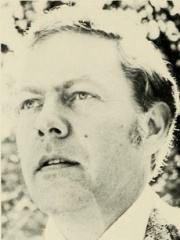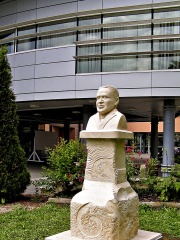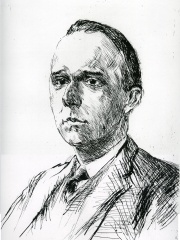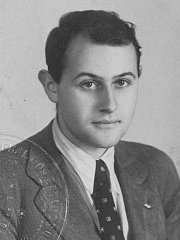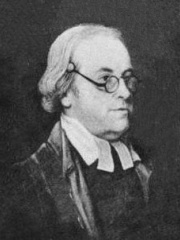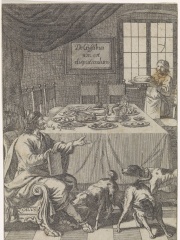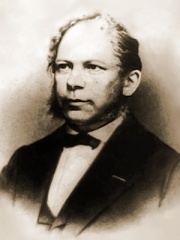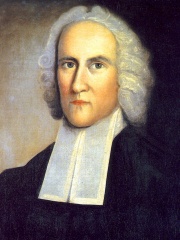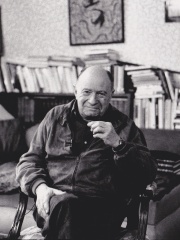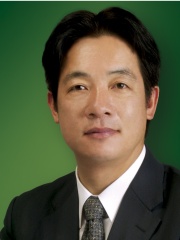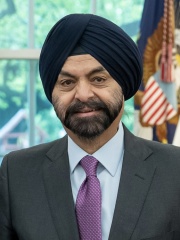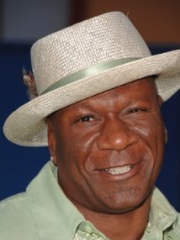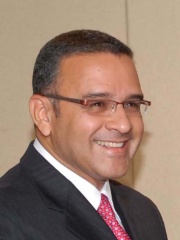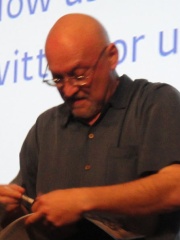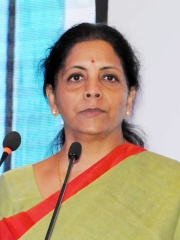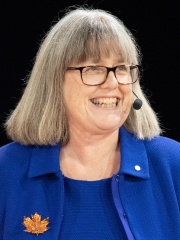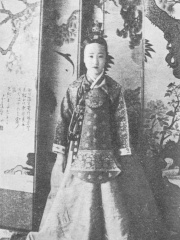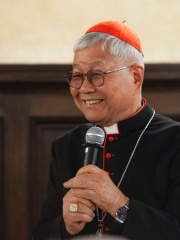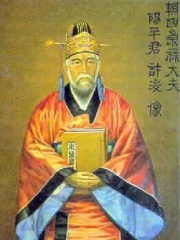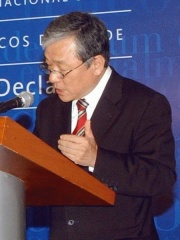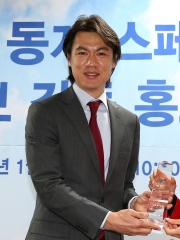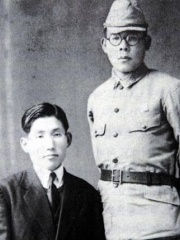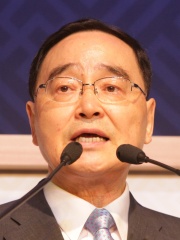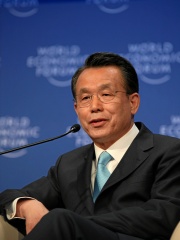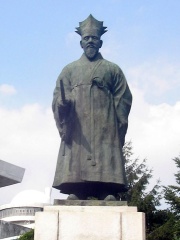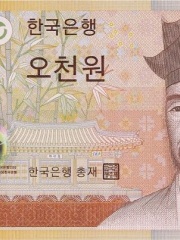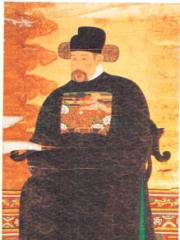Philosopher
Byung-Chul Han
1959 - today
EN.WIKIPEDIA PAGE VIEWS (PV)
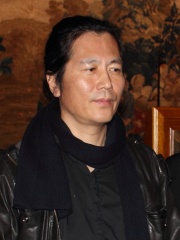
 Byung-Chul Han
Byung-Chul Han
His biography is available in 28 different languages on Wikipedia (up from 23 in 2024). Byung-Chul Han is the 596th most popular philosopher (up from 727th in 2024), the 104th most popular biography from South Korea (up from 108th in 2019) and the 3rd most popular South Korean Philosopher.
Memorability Metrics
Page views of Byung-Chul Han by language
Among Philosophers
Among philosophers, Byung-Chul Han ranks 596 out of 1,267. Before him are G. A. Cohen, Tom Regan, Jean Hyppolite, Werner Jaeger, Vilém Flusser, and Hans Blumenberg. After him are David Hartley, Zoilus, Constantin von Tischendorf, Jonathan Edwards, Jacques Ellul, and Emer de Vattel.
Most Popular Philosophers in Wikipedia
Go to all RankingsG. A. Cohen
1941 - 2009
HPI: 64.80
Rank: 590
Tom Regan
1938 - 2017
HPI: 64.80
Rank: 591
Jean Hyppolite
1907 - 1968
HPI: 64.79
Rank: 592
Werner Jaeger
1888 - 1961
HPI: 64.79
Rank: 593
Vilém Flusser
1920 - 1991
HPI: 64.79
Rank: 594
Hans Blumenberg
1920 - 1996
HPI: 64.77
Rank: 595
Byung-Chul Han
1959 - Present
HPI: 64.75
Rank: 596
David Hartley
1705 - 1757
HPI: 64.73
Rank: 597
Zoilus
400 BC - 320 BC
HPI: 64.73
Rank: 598
Constantin von Tischendorf
1815 - 1874
HPI: 64.73
Rank: 599
Jonathan Edwards
1703 - 1758
HPI: 64.71
Rank: 600
Jacques Ellul
1912 - 1994
HPI: 64.69
Rank: 601
Emer de Vattel
1714 - 1767
HPI: 64.67
Rank: 602
Contemporaries
Among people born in 1959, Byung-Chul Han ranks 74. Before him are William Lai, Ajay Banga, Ving Rhames, Mauricio Funes, Frank Darabont, and Sam Raimi. After him are Nirmala Sitharaman, Miki Matsubara, Wim Hof, Rosanna Arquette, Victoria Abril, and Donna Strickland.
Others Born in 1959
Go to all RankingsWilliam Lai
POLITICIAN
1959 - Present
HPI: 65.45
Rank: 68
Ajay Banga
BUSINESSPERSON
1959 - Present
HPI: 65.41
Rank: 69
Ving Rhames
ACTOR
1959 - Present
HPI: 65.23
Rank: 70
Mauricio Funes
JOURNALIST
1959 - 2025
HPI: 65.11
Rank: 71
Frank Darabont
FILM DIRECTOR
1959 - Present
HPI: 65.03
Rank: 72
Sam Raimi
FILM DIRECTOR
1959 - Present
HPI: 65.00
Rank: 73
Byung-Chul Han
PHILOSOPHER
1959 - Present
HPI: 64.75
Rank: 74
Nirmala Sitharaman
POLITICIAN
1959 - Present
HPI: 64.60
Rank: 75
Miki Matsubara
COMPOSER
1959 - 2004
HPI: 64.53
Rank: 76
Wim Hof
RELIGIOUS FIGURE
1959 - Present
HPI: 64.23
Rank: 77
Rosanna Arquette
ACTOR
1959 - Present
HPI: 64.20
Rank: 78
Victoria Abril
ACTOR
1959 - Present
HPI: 64.11
Rank: 79
Donna Strickland
PHYSICIST
1959 - Present
HPI: 64.09
Rank: 80
In South Korea
Among people born in South Korea, Byung-Chul Han ranks 104 out of NaN. Before him are Ri Chun-hee (1943), Chungjeong of Goryeo (1338), Princess Deokhye (1912), Choe Yeong (1316), Lazarus You Heung-sik (1951), and Heo Jun (1546). After him are Lee Jong-wook (1945), Hong Myung-bo (1969), Jisoo (1995), Stephen Kim Sou-hwan (1922), Chung Hong-won (1944), and Han Seung-soo (1936).
Others born in South Korea
Go to all RankingsRi Chun-hee
POLITICIAN
1943 - Present
HPI: 65.30
Rank: 98
Chungjeong of Goryeo
POLITICIAN
1338 - 1352
HPI: 65.28
Rank: 99
Princess Deokhye
NOBLEMAN
1912 - 1989
HPI: 65.28
Rank: 100
Choe Yeong
MILITARY PERSONNEL
1316 - 1388
HPI: 64.92
Rank: 101
Lazarus You Heung-sik
RELIGIOUS FIGURE
1951 - Present
HPI: 64.90
Rank: 102
Heo Jun
PHYSICIAN
1546 - 1615
HPI: 64.85
Rank: 103
Byung-Chul Han
PHILOSOPHER
1959 - Present
HPI: 64.75
Rank: 104
Lee Jong-wook
POLITICIAN
1945 - 2006
HPI: 64.68
Rank: 105
Hong Myung-bo
SOCCER PLAYER
1969 - Present
HPI: 64.32
Rank: 106
Jisoo
SINGER
1995 - Present
HPI: 64.32
Rank: 107
Stephen Kim Sou-hwan
RELIGIOUS FIGURE
1922 - 2009
HPI: 64.31
Rank: 108
Chung Hong-won
POLITICIAN
1944 - Present
HPI: 64.27
Rank: 109
Han Seung-soo
POLITICIAN
1936 - Present
HPI: 64.22
Rank: 110
Among Philosophers In South Korea
Among philosophers born in South Korea, Byung-Chul Han ranks 3. Before him are Yi Hwang (1501), and Yi I (1536). After him are Yun Hyu (1617), and Jaegwon Kim (1934).
Yi Hwang
1501 - 1570
HPI: 67.75
Rank: 1
Yi I
1536 - 1584
HPI: 66.67
Rank: 2
Byung-Chul Han
1959 - Present
HPI: 64.75
Rank: 3
Yun Hyu
1617 - 1680
HPI: 61.95
Rank: 4
Jaegwon Kim
1934 - 2019
HPI: 56.32
Rank: 5
